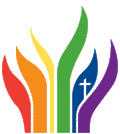Psalms: The Poetry of the People
How do you process major moments in your life? In the world? In recent years, my answer to that has been poetry. First, the reading of it. Poets like Rupi Kaur, Danez Smith, Andrea Gibson, and Mary Oliver put words on paper, spoke words into microphones that have spoken to my soul, that have challenged and confronted, nurtured and nourished me.
Then there’s actually writing my own poetry. It’s interesting. Generally I like to feel prepared, I like to plan and research before I put words on paper, but usually the poetry comes out differently. It’s the words that come to my mind as I try to sleep, the words that come to my mind in the car. The words that come to my mind in the moments after major and minor events in which I try to make sense of what has happened.
Who are the poets that move you? What are the words that have sustained you? This week our Scripture reading comes from the psalms. There are 150 psalms, psalms of celebration and gratitude, of sorrow and lament. In times of struggle and joy many go to the psalms seeking meaning for the chaos, wonder, beauty, and mess of life. The psalms are the poetry of the people, lifted up to God. Some of the psalms are beautiful. Others are raw, painful, and even vengeful, and yet those who wrote them offered all of this and more to God, trusting that God holds it all: our sorrow, anger, hope, and happiness.
This week we explore Psalm 13, a short and powerful psalm of lament. What are we lamenting? What laments are hidden from us? What do our collective laments say about our greatest hopes and struggles in this life?
- Andi Voinovich's blog
- Log in to post comments
God, as known to us in Jesus Christ, welcomes all.
We welcome people of any race, national origin, ethnicity, gender, sexual orientation, age, social or economic status, employment status, or life situation; including people with physical or mental illness or disability.
We practice loving acceptance of each person and respectful discussion
 of our differences.
of our differences.
Affiliated to Reconciling Ministries Network
Recent News
Sunday Worship Service - July 30 at 10:00 am
July 30, 2023 - 9:51am
Sunday Worship Service - July 23 at 10:00 am
July 23, 2023 - 9:48am
Sunday Worship Service - July 16 at 10:00 am
July 16, 2023 - 10:17am
Vacation Bible School
July 14, 2023 - 10:10pm
Sunday Worship Service - July 9 at 10:00 am
July 9, 2023 - 9:53am






